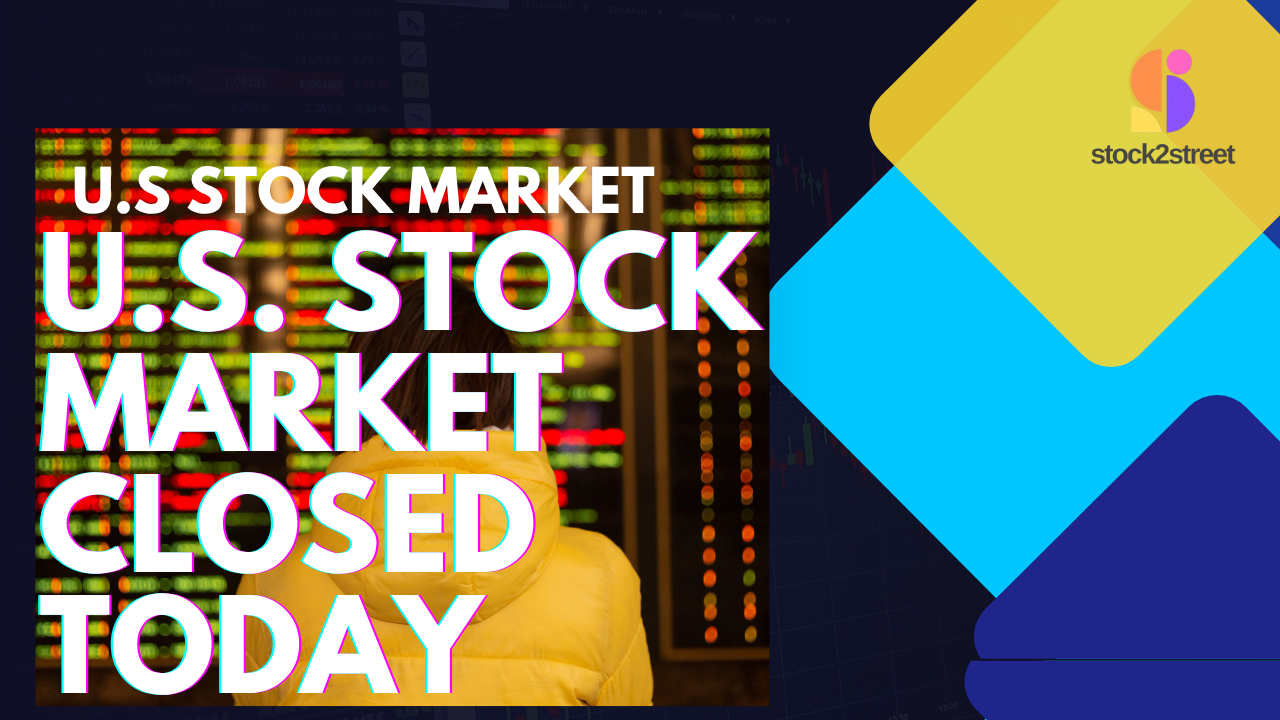U.S. Stock Market Closed Today

Few things confuse some retail investors more in the world of investing than seeing either the New York Stock Exchange or Nasdaq Stock Market marked “closed” on a weekday. Any time the U.S. markets take a break, many factors could be at play: holiday observance, early-close scheduling, extraordinary events, or technical market considerations. This is a guide on why the U.S. stock market is closed today and the official holiday calendar, and what that will mean for you as an investor.
1. How U.S. Market Closing Works
Major U.S. stock exchanges observe a defined holiday schedule that is published each year by both exchanges and industry associations. For example, in the NYSE’s trading calendar, full-day closures and early close days are listed: Also you can read about American depositary receipts process
Here are the two types of market closures:
- Full-day holiday closure: There is no regular trading at all; the exchange is closed for the whole day.
- Early close / half-day — Markets operate for a shortened session, often preceding a major holiday.
Moreover,
- The standard regular trading hours: 9:30 a.m. to 4:00 p.m. Eastern Time (ET) on weekdays.
- Pre-market and after-hours sessions exist, but they do not replace the core open hours.
So, when you observe the market is closed today, it is nearly always because of one of the scheduled holidays or an extraordinary event. you can read about Why FCL share price going down “Full Analysis
2. Check the U.S. Market Holiday: What Holiday or Special Event?
Full-Day Holidays
Following are some major holidays in 2025 on which the U.S. stock market is closed:
- New Year’s Day (Jan 1)
- Martin Luther King Jr. Day
- Presidents’ Day (Washington’s Birthday)
- Good Friday* (though not a federal holiday for banks, the market observes it)
- Memorial Day
- Juneteenth (June 19) – a Federal Holiday and observed by the Exchanges.
- Independence Day (July 4) – Market closed; preceding day often a half‐day.
- Labor Day (first Monday of September) – Closed.
- Thanksgiving Day – Closed
- Christmas Day – Closed.
Early Close Days
U.S. Market On some days before or after a major holiday, the market may close early-for example, at 1:00 p.m. ET-to accommodate lower volume and allow participants to observe. also you can read about Asian stock market
Extraordinary Closures
Sometimes the U. S market is closed due to national mourning, natural disaster or systemic issues, such as the week after Sept 11 2001.
3. Why These Closures Happen
Holiday Observance & Tradition
Many holidays that lead to a market closure reflect U.S. federal holidays or historically significant observances (Good Friday). Financial markets often track the holiday schedule of banks or federal government agencies.
Liquidity and Risk Management
When the market participation is expected to be low, such as holiday periods, the liquidity drops and volatility can spike. By closing or abbreviating sessions, exchanges reduce the risk of large disruptions or manipulation in thin markets.
Coordination with Global Markets & Institutions
Since U.S. markets are so deeply integrated with global markets and major financial institutions, a consistent schedule helps in settlement, clearing, and risk management across jurisdictions.
4. What It Means for You as an Investor
If the market is closed today, here’s what you need to know:
- You cannot place or execute any trades in the regular trading session. Any orders placed will queue for the next trading day unless your broker offers extended hours or special execution.
- Portfolio updates may be delayed-reporting, valuations, and benchmark indices will not update in real time until the next session.
- Overnight news may affect your positions: While the market is closed, news can still break — earnings, macro data, etc. — which may cause a gap when the market reopens.
- Notice earlier commitments: If you were planning trades, IPOs, or corporate actions today, you would have to adjust for the next open day.
- Global markets may still trade. Foreign exchanges may be open, meaning international events can still affect sentiment upon the reopening of U.S. markets.
5. U.S. Market Common Questions & Clarifications
Q: Is it closed due to a bank holiday?
Not always. While many holidays coincide with bank closures, some like Good Friday are observed by the market though not by all banks.
Q: Does the bond market close, too?
Often yes, but the bond market has extra holidays and early closes apart from equities.
Q: Will the market reopen tomorrow?
Yes — unless there is an extraordinary event. Normally, the next scheduled trading day resumes at 9:30 a.m. ET.
Q: Can I trade outside regular hours?
Some brokers offer pre-market or after-hours trading, but volumes are lower and risks are higher. Moreover, those are not full substitutes for the regular session.
6. How to Check U.S. Market Status Yourself
You can quickly check to see if the market is closed today:
- Check out the NYSE or Nasdaq official holiday calendar.
- Check your brokerage or trading platform’s notice page.
- Search for “Is U.S. stock market open today?” which will highlight holiday closures.
- Note the time differences if you are following outside of the U.S. – for example, India Standard Time, etc.
7. U.S. Market Take-Away for Investors The bottom line
A closed U.S. stock market today is almost certainly due to a scheduled holiday or early session rather than a malfunction. As much as it might interfere with any trading plans you might have, it also provides good reason to look ahead, monitor what’s happening with international markets, and prepare yourself for when the doors open once more. It impacts long-term investors little: their portfolios can remain intact, while planning around when the next open session will take place is easily done. Active traders, however, have to be aware of early closures or trading days adjacent to holidays to avoid surprises.

